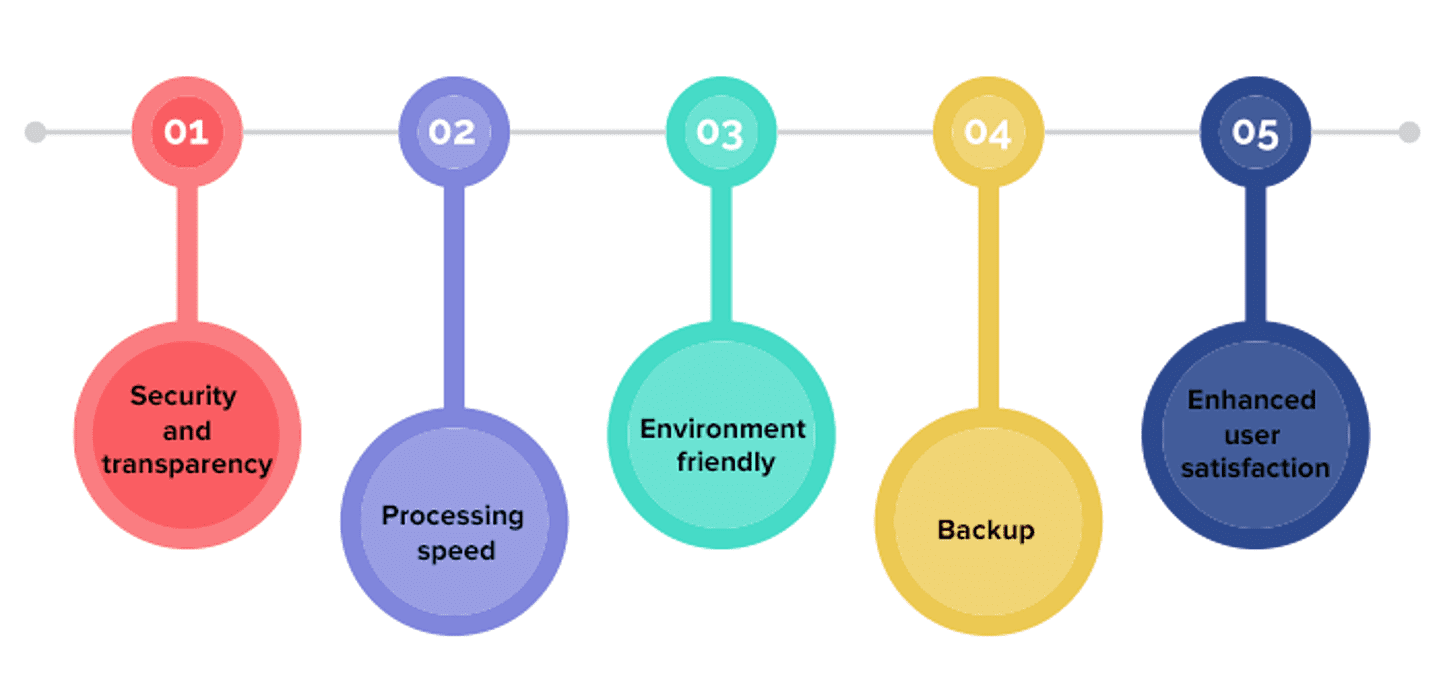
To put it in simple words, smart contracts are used to automate settlement processes by uploading terms and conditions on a blockchain network in the form of some codes. Smart contract technology exists to eliminate the need for third parties for approvals so that processes can be more sacred, efficient, and fast.
Sectors such as banking, fintech, healthcare, drug research, real estate, insurance, and supply chain, among others have found ways of using smart contracts to make their services more convenient. Also, to stay ahead in the competition by offering better efficiency of work and to improve customer retention rate, smart contracts are being helpful for such organizations. As per a report by CISION, by 2026, the global smart contracts market might reach an approximate threshold of $345.4 million at a CAGR rate of 18.1% between 2021 to 2026.
In this blog, we are throwing some light on the ways blockchain technology trends are using and supporting smart contracts for the benefit of users and businesses. So, stick with us until the end of this blog to know some exciting facts about smart contract development and its increasing adoption.
How do smart contracts work?
On a blockchain server, terms and conditions are defined in the form of programs that automate the smart contracts processes. Companies usually use various types of smart contracts to execute tasks for insurance settlements, credit card approvals, and more.
To create smart contracts, there can be as many terms as needed for the entire process. Thus, to satisfy an approval or settlement, participants can update information such as requirements to satisfy a task, documents needed, and more.
Three main steps are involved in creating smart contracts and making them work-
- Creating terms and conditions in the form of codes
- Uploading these terms and conditions on decentralized blockchain servers
- Reviewing claims or approvals to identify if they match all terms and conditions defined in smart contracts
Blockchain technology enables organizations to define and upload terms and conditions on a decentralized network shared by many nodes. This network is shared between organizations but owned by none. Moreover, due to the inclusion of multiple nodes in the smart contract database, for hackers, it’s more than impossible to enter into the system as they will have to hack all nodes to access smart contracts to make tweaks in them.
As an example, we can use EncrypGen that has already created a smart contract-based healthcare system. Their system allows patients to secure their medical history in a virtual environment free from the access of any third parties. Patients have the freedom to be in full control. However, smart contracts come into the scene when companies want to use the data of the patient for tasks such as advertising or surveys.
Benefits of smart contracts

Smart contract companies are focused on making tasks more efficient and faster. However, there are many more benefits for which, it is ideal to create smart contracts to automate processes.
Security and transparency
If you have understood how to use smart contracts, you must have figured out that smart contracts use blockchain technology as their database. Thus, any task done will result in creating an entry on the blockchain ledger storing smart contracts. These entries of the smart contract platforms can not be tempered by even participating users. To modify terms and conditions or processes, new entries will have to be made and old entries will not be erasable. Thus, from the security perspective, it is easier to identify any attempts of hacking or tempering in the data.
Now, apart from being tamper-proof, entries on the blockchain ledger also keep other information such as devices used to modify the data, usernames that made changes, and more. Thus, even locating the compromised device participating in smart contract development to limit or block its access is quite easier too.
Processing speed
As mentioned above, smart contract blockchain technology eliminates the requirement of an intermediary party. Thus, approvals are automated and usually happen faster, irrespective of any amount of workload. Unless there is an error in the system, smart contract applications can authorize transactions and other processes even on holidays. Elimination of third parties from smart contract applications saves time and removes the requirement of paying fees for approvals. With the rising popularity of smart contracts, almost all top blockchain companies offer related services for large and small businesses.
Environment friendly
If we look at smart contracts from the perspective of saving papers, smart contract blockchain is more reliable for users due to its enhanced security protocols. Thus, more and more organizations are comfortable partnering with smart contract companies to transform their traditional processes into digital ones.
Backup
Blockchain eliminates impacts caused by major problems with smart contracts such as data loss, hardware error, or hacking attempts by offering secured backup services. As mentioned above, blockchain keeps entries tamper-proof. Thus, it is always possible to retrieve all the ledger data at any point in time from servers.
Enhanced user satisfaction
Elimination of third parties directly influences the processing time of approvals and settlements. Thus, users feel more satisfied with organizations using smart contracts as their work gets done faster. This is not only good for the user but also for the reputation of the organization.
Where can smart contracts be used?
According to the Chiang Rai Times, the usage of smart contracts is still expanding its coverage into multiple industries. As businesses are getting informed about the technology, they are exploring to use smart contracts at their optimum efficiency. However, there are a few examples of industries using the benefits of smart contracts well. Let’s have a look at them.
Automated settlement of insurance claims
Among the most popular types of smart contracts in the market today, smart contracts for insurance settlements are quite popular. In this scenario, terms and conditions defined and agreed by two or multiple parties are converted into smart contracts and saved on the blockchain server. Every time a user claims for the settlement, smart contracts review their eligibility and take actions for settlements accordingly. The entire process does not require manual authorization and gets done way faster than before.
Better medication transportation
IBM is using the technology to ensure better efficiency of medicine transportations. Smart contracts are used for the supply chain system to make them more transparent. In other words, throughout the entire transportation process, parties that use data such as temperature, weight, etc., to verify and approve the shipment at every stage are eliminated with a smart contract. It not only does save time, but temperature-sensitive medicines reach their destinations more quickly.
Smart contracts in real estate
With the tokenization process, even the real estate industry is able to use the benefits of smart contracts. Smart contract technology is helping real estate by reworking the documentation processes. Moreover, blockchain technology with smart contracts can enable virtual registry processes that will reduce the workload on authorities and eliminate the waiting time by a considerable margin.
Conclusion- Smart contracts will expand more
The above-mentioned statistics show that smart contracts will keep rising and join multiple industries as they become more operational and adaptable. Thus, for companies that are looking forward to staying ahead in the competition in advance, it is still not late to explore smart contracts and their operations.
In the end, hopefully, this blog was useful and informative for you and answered your question- what are smart contracts in blockchain. You can read many other tech blogs on MobileAppDaily as well. There are app reviews, top apps lists for different categories, lists of top tech companies for different tasks, and more for you to read. In short, on MobileAppDaily, you get a treasure trove of tech news unlike any other.
Frequently Asked Questions

By Sakshi Kaushik

Content Writer (B2B Editorial)
A passionate writer and tech lover, she strives to share her expertise with mobile app developers and fellow tech enthusiasts. During her moments away from the keyboard, she relishes delving into thriller narratives, immersing herself in diverse realms.












